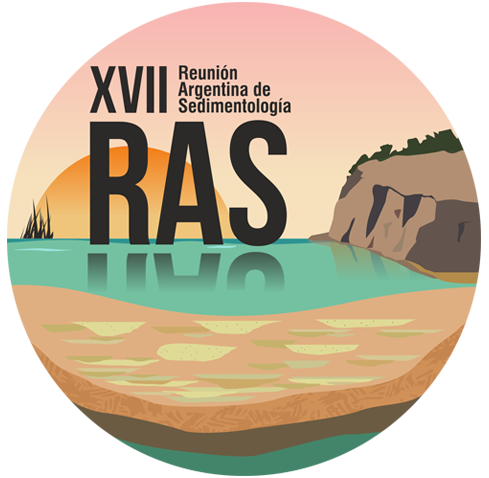Sesión Especial SE2: SEDIMENTOLOGÍA Y MODELOS DE FACIES SEDIMENTARIAS EN SISTEMAS FLUVIALES DISTRIBUTIVOS (DFS)
Coordinadores: Daniela Kröhling (Argentina), Giorgio Basilici (Brasil) & Marcus Vinícius Theodoro Soares (Brasil)
Los sistemas fluviales distributivos (DFS) tienen gran importancia en la dispersión de sedimentos y en el registro de eventos, dominando en cuencas agradacionales modernas, pero también formando parte importante del registro geológico. La fuerte dinámica avulsiva de los ríos formativos está inducida por cargas excesivas de sedimentos desde las cuencas afluentes de montaña, lo que da origen a una morfología y distribución de ambientes particular.
La importancia de los DFS en el análisis de la dinámica geomorfológica de las cuencas sedimentarias modernas y en la interpretación del registro estratigráfico antiguo es muy reciente. El conocimiento de estos sistemas deposicionales en términos de investigación y de su manejo desde el punto de vista socioeconómico es parcial. Sin embargo, los DFS se presentan en variados contextos tectónicos y climáticos y aportan significativamente al análisis de forzantes endógenos y exógenos de amplias regiones.
Resulta clave avanzar en la caracterización del registro sedimentario de DFS con el objetivo de mejorar la interpretación de facies fluviales y su aplicación en el estudio de yacimientos de reservorios, entre otros. Los depósitos de DFS se identifican como una clase distinta en función de su geometría, entorno geomórfico y estructura interna. La descripción de facies sedimentarias y sus asociaciones, la arquitectura estratigráfica y la reconstrucción paleoambiental resultan entonces de gran interés. Los avances permitirán avanzar en el análisis del riesgo asociado al cambio climático y la vulnerabilidad de estos sistemas.
Invitamos a participar en esta SE que plantea esta temática de plena actualidad y con potencial desarrollo para Sudamérica, que reúne algunos de los mayores DFS del mundo.
Plazo para envío de resúmenes de 1 pág.: 20 de agosto del 2021 (adaptados a las normas publicadas en las circulares del evento).
Contacto: dkrohling@santafe-conicet.gov.ar; giorgio@unicamp.br; m105348@dac.unicamp.br
Special Session SE2: SEDIMENTOLOGY AND FACIES MODEL IN DISTRIBUTIVE FLUVIAL SYSTEMS (DFS)
Conveners: Daniela Kröhling (Argentina), Giorgio Basilici (Brazil) & Marcus Vinícius Theodoro Soares (Brazil)
Distributive Fluvial Systems (DFS) enclose great relevance in the dispersion of sediment and the recording of geological events. They dominate current aggradational basins, as well as constitute a large component of the geological record. Their avulsive dynamics is controlled by the high sediment charge originating from the mountain catchment areas, thus generating particular morphologies and distribution of the environments.
The relevance of the DFS in the analysis of the current sedimentary basins and the interpretation of the ancient sedimentary successions is relatively new. Nevertheless, DFS are present in different climate and tectonic environments and effectively contribute to the analyses of endogenous and exogenous control factors of large areas.
It is of significant importance to progress into the characterisation of the sedimentary record of DFS with to improve the interpretation of fluvial facies and their application in the characterisation of the hydrocarbon reservoirs, for example. DFS deposits arise as a particular class of sediments due to their geomorphologic environment, geometry and internal organisation. The description of the sedimentary facies and their association, the depositional architecture and the palaeoenvironmental reconstruction turn out attractive and of great interest. In addition, studies associated to DFS may be able to analyse the geological hazard tied to climate changes and the vulnerability of these systems.
We encourage the sedimentological community to attend this SE, which proposes a topical issue that has an effective potential development for South America where some of the largest DFS of the world exist.
Deadline to abstract submission is: August 20th, 2021. See Circular of the Congress.
Contact: dkrohling@santafe-conicet.gov.ar; giorgio@unicamp.br; m105348@dac.unicamp.br


Deja tu comentario